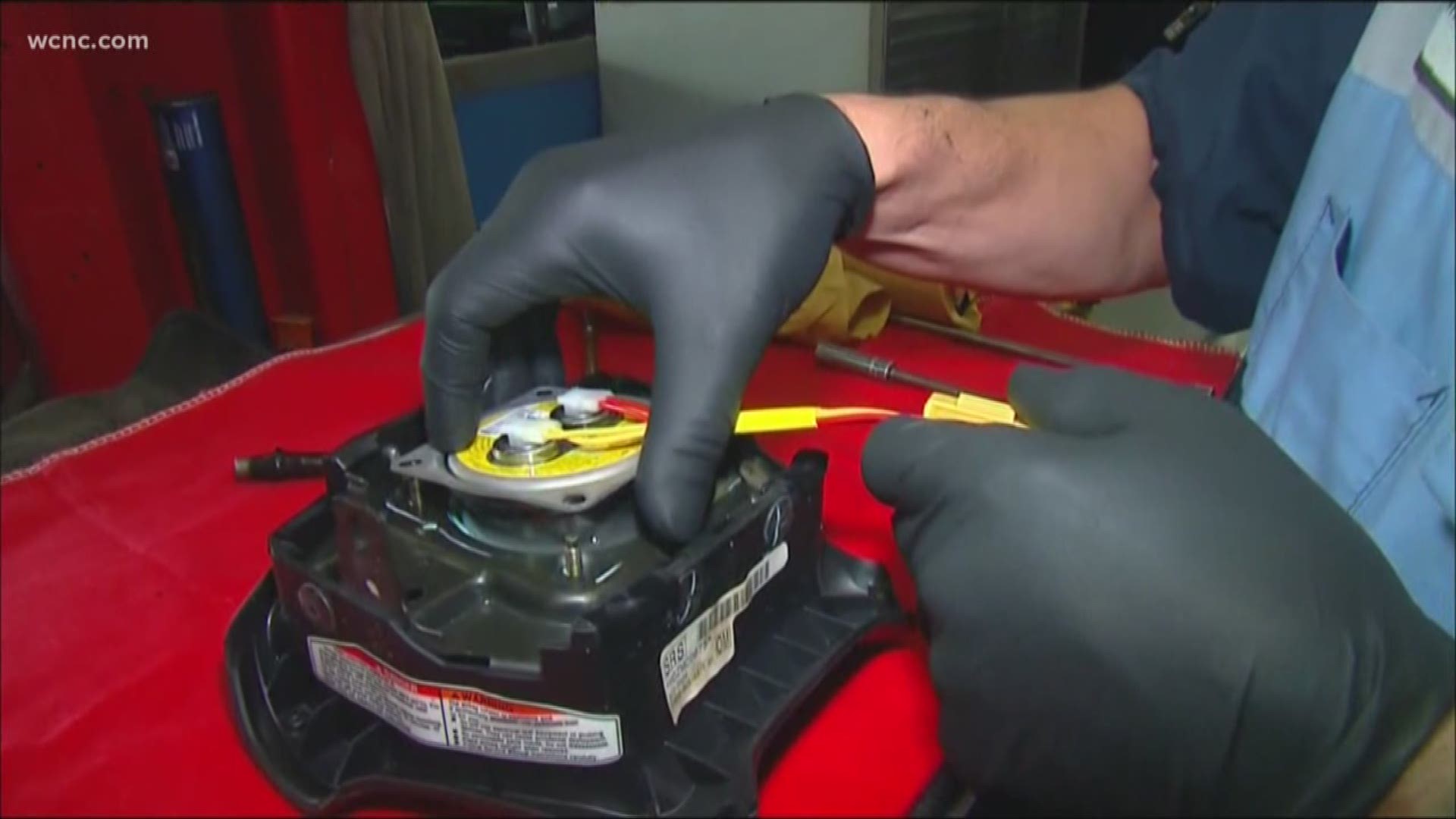CHARLOTTE, N.C. — One out of every five cars on Charlotte's roads are putting all of us at risk with dangerous safety recalls, but our Defenders investigation found your odds of riding in a car with an unfixed recall go up when you get in an Uber, Lyft, taxi or limo.
We partnered with Carfax to run the license plates of Lyfts and Ubers for a brief time on two separate days at Charlotte Douglas International Airport.
Carfax's app identified open safety recalls on one out of every four cars, including the Uber Michael Tyler got in. Before the car drove away, we told him it had two open recalls, including a risk of an engine stall.
"Really?" he asked.
While he waited, he told us he just fixed an open safety recall on his personal car. Our investigation found cars for hire are not as diligent.
We found open Takata airbag recalls, fire risk, an occupant restraint controller issue, a side door latch problem, a power steering issue, a power door sensing problem, and a hood latch problem on Lyfts and Ubers.
We also collected the VINs of every taxi and limo sedan and SUV registered with the city of Charlotte. Records showed 28 percent, the equivalent of more than 200, have open recalls.
Carfax Public Relations Manager Chris Basso said what we found is higher than average.
"That’s a high percentage of cars, but not surprising, unfortunately," Basso said. "Our data suggest that one out of every five and actually greater than one out of every five vehicles in the Charlotte area has unfixed recalls on them. That's well north of half a million vehicles that are on the road right now, driving around, with a potentially dangerous safety issue."
A car's VIN or license plate number holds the key to whether there's a safety recall. Drivers and passengers can plug the license plate information into Carfax's free app or VIN into safercar.gov and know instantly if there's an open recall.
While it's easy for the public to brush off recalls, for those impacted by safety problems, the finality of losing a loved one is a lifelong reminder. Ann Knight's husband Joel died in 2016 in South Carolina when his airbag deployed and a piece of shrapnel flew out of it into his neck.
"To lose him like this it's very heartbreaking," Knight said. "This could have been prevented. His death could have been prevented."
Even if you don't receive a notice from the manufacturer like you're supposed to, if you check the recall status yourself, the fix is easy.
"All you got to do is call the dealer," Basso said.
Uber and Lyft maintain it's up to their drivers, not the companies themselves, to make sure every car is safe.
"We provide resources to drivers and encourage them to check for recalls and to perform routine maintenance," Uber said in a statement. "Uber drivers receive quarterly reminders to stay up-to-date on current NHTSA vehicle recall information by visiting safercar.gov and signing up for safety recall notifications. As part of our commitment, we're proactively waitlisting vehicles with open recalls that include a 'Do Not Drive' language from the manufacturer or NHTSA from the app until they have taken action on their vehicle."
"Drivers make a continuous representation that their vehicle meets the industry safety standards and all applicable state department of motor vehicle requirements for a vehicle of its kind," Lyft said.

